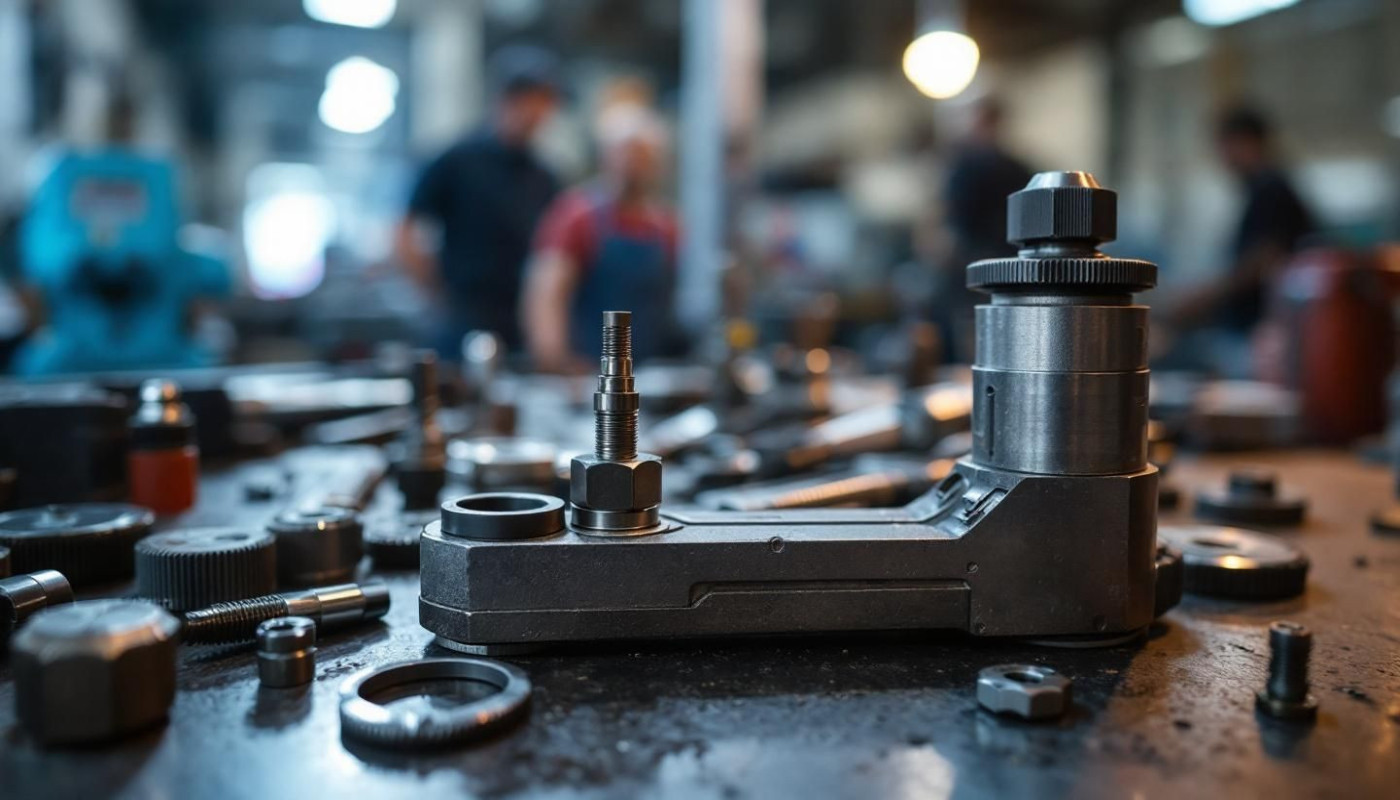Table of contents
Discover why pre-owned precision machining tools are becoming the smart choice for manufacturers aiming to boost productivity without breaking the bank. Advances in technology have made it possible to acquire reliable, high-performance equipment at a fraction of the cost. Explore how these tools can streamline operations and increase your company’s competitive edge in the paragraphs below.
Unlocking productivity potential
Implementing pre-owned machining tools in a manufacturing environment offers a practical path to elevated productivity and improved workflow. When production lines integrate second-hand machinery equipped with advanced retrofit capability, the resulting impact on cycle times and machine uptime can be substantial. By leveraging the reliability and proven performance of precision equipment, facilities can reduce unexpected breakdowns and maintenance interruptions, driving manufacturing efficiency and greater process stability. In sum, these tools not only deliver consistent results at a fraction of the cost of new equipment, but also allow for rapid adaptation to shifting production demands, ensuring smoother day-to-day operations and maximized resource utilization.
Cost savings and budget control
Selecting used equipment for precision machining offers substantial cost savings that are instantly recognized in capital expenditure planning. Lower upfront costs mean businesses can allocate resources more strategically, allowing for an affordable solution that aligns with budget control objectives. In addition, used equipment typically undergoes less severe depreciation than brand-new machinery, preserving asset value for a longer period and minimizing financial loss. Effective machinery investment strategies that favor pre-owned assets enable companies to redirect available funds toward other critical areas, such as research and development, staff training, or process innovation. This approach not only maintains operational excellence but also provides agility in responding to market changes, all while ensuring prudent management of financial resources.
Quality assurance and reliability
Reputable resellers of pre-owned precision machining tools adhere to rigorous quality assurance protocols to guarantee reliable machinery that performs at the highest standards. Every piece of equipment undergoes a detailed equipment inspection process, where experts assess mechanical integrity, accuracy, and operational safety, often referencing internationally recognized performance standards and ISO certification requirements. These protocols involve comprehensive testing of critical components, calibration checks, and analysis of wear patterns. Refurbished tools are meticulously restored using certified replacement parts, advanced diagnostic instruments, and state-of-the-art techniques to return them to optimal working condition. In line with industry best practices, established resellers frequently offer warranty options, giving buyers confidence in the durability and long-term value of their acquisitions. This robust combination of inspection, refurbishment, and warranty ensures that businesses can integrate pre-owned equipment into their operations without compromising on reliability or precision.
Sustainability and environmental impact
Purchasing pre-owned precision machining tools supports sustainability by extending the lifecycle of high-value equipment and minimizing the need for new resource extraction. This approach actively promotes industrial waste reduction, as machines are refurbished and reused rather than discarded, preventing unnecessary items from entering landfills. From the viewpoint of an environmental compliance officer, reusing precision tools aligns closely with the core principles of the circular economy, where products and materials are kept in use for as long as possible, reducing both environmental impact and the demand for raw materials.
Resource conservation is achieved when manufacturers opt for used CNC lathes and similar equipment, as the energy and materials required to produce new machinery are significantly reduced. Furthermore, reusing and repurposing equipment helps organizations maintain compliance with evolving environmental standards, while also meeting ethical obligations to minimize their ecological footprint. These actions directly contribute to eco-friendly manufacturing by promoting efficient use of existing assets and reducing the overall carbon footprint of industrial operations.
By embracing the purchase of pre-owned equipment, companies demonstrate their commitment to responsible production and sustainable growth. For those seeking reliable sources of used CNC lathes and other precision tools, platforms like this web site provide access to high-quality machinery, making it easier for organizations to adopt sustainable business practices without sacrificing performance. Such choices reinforce the adoption of circular economy strategies within the manufacturing sector, ultimately benefiting both the environment and the bottom line.
Adapting to evolving technologies
Pre-owned precision machining tools present a strategic opportunity for companies to maintain competitiveness by embracing evolving technology while optimizing capital expenditure. Through retrofitting, older machines can receive hardware and software enhancements, such as a CNC controller upgrade, which allows seamless integration with contemporary automation systems and data-driven processes. Machine upgrades not only extend the service life of valuable assets but also position businesses for future readiness, as these improvements make it possible to connect legacy equipment with smart manufacturing networks. Upgraded pre-owned tools can incorporate sensors, updated drives, and modern user interfaces, facilitating real-time monitoring and predictive maintenance within advanced production lines. Investing in these updates ensures that even established machinery remains reliable and efficient components of a dynamic manufacturing environment, adapting smoothly to rapid technological changes.
Retrofitting and systematic machine upgrades enable manufacturers to bridge the gap between existing equipment and the latest digital manufacturing trends. As advanced software and interconnected systems become standard requirements, the ability to adapt older machines supports continuous process improvement without the disruption or high costs of full equipment replacement. This approach not only leverages the robust build quality of pre-owned precision tools but also enhances production flexibility, scalability, and integration with Industry 4.0 initiatives. Ultimately, these adaptation strategies maximize the value of current assets while preparing organizations to meet the demands of smart manufacturing and the next wave of technological progress.
Similar





